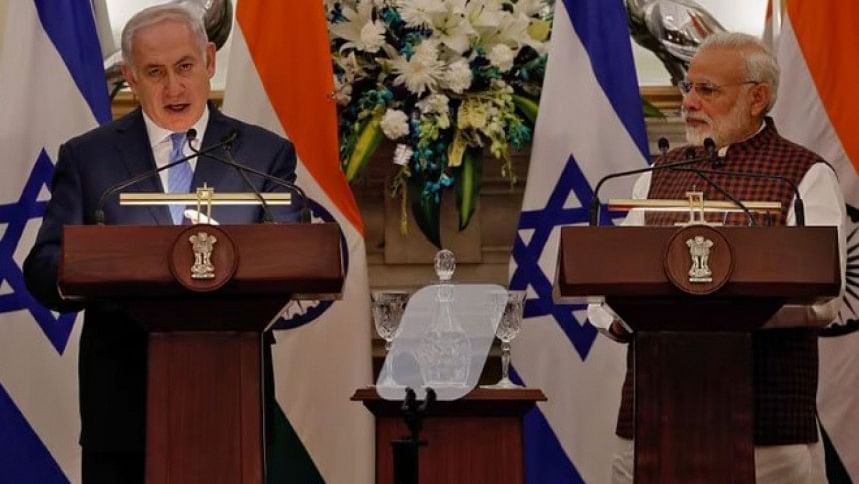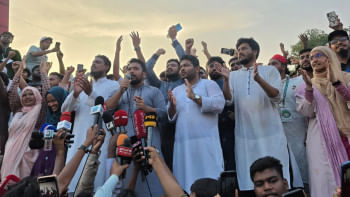India, Gaza, and the drift from non-alignment

India's tortuous stance on the ongoing Israel-Hamas conflict in Gaza offers a fascinating illustration of the recent evolution of the country's foreign policy.
For decades after independence, India's approach to the world was shaped by its historical experience of colonialism. Having spent 200 years with a foreign country speaking for them on the world stage, Indians were unwilling to sacrifice any decision-making power in the name of either side in the Cold War. "Strategic autonomy" became an obsession, leading to the birth of "non-alignment," or equidistance between the superpowers.
The position was more complicated than it sounds. As a leading voice for decolonisation, India took a moralistic stance against imperialism and apartheid that often came across as being anti-Western, even as the country's steadfast adherence to democratic processes and respect for diversity at home endeared it to Western liberals.
When it comes to the Israeli-Palestinian conflict, India has walked a similar tightrope. In 1947, India voted against the United Nations partition of the former British Mandate of Palestine into Jewish and Arab states. It knew the pain of partition firsthand: the British created Pakistan as a state for Indian Muslims. Rather than back another externally imposed division, India championed the vision of a single secular state for both Jews and Arabs in Palestine—a state that would have much in common with the one it had established for itself.
While India recognised Israel, it kept relations at the consular level for more than four decades, naming an ambassador only in 1992. In the meantime, India became the first non-Arab country to recognise the Palestine Liberation Organization (PLO) as the sole and legitimate representative of the Palestinian people (in 1974), and the first to extend formal recognition of Palestinian statehood (in 1988).
But the rise of Pakistan-enabled Islamic militancy bolstered Indian interest in warmer relations with Israel—a country that also confronted Islamist extremists. Security and intelligence cooperation soon began to grow, and political and diplomatic relations gradually deepened.
Nonetheless, successive Indian governments, conscious of the sympathies of India's substantial Muslim population, upheld support for the PLO. When PLO Chair and Palestinian National Authority President Yasser Arafat sought a peaceful end to the conflict, India became a votary of the two-state solution. Today, India is one of only a handful of countries to maintain ambassadors in both Tel Aviv and Ramallah.
But India's relations with Israel have lately been intensifying. Israel has become a vital source of defence equipment, a partner in intelligence cooperation, and reportedly a provider of surveillance software that Prime Minister Narendra Modi's increasingly autocratic government allegedly uses against its domestic opponents and critics.
It is perhaps not surprising, then, that when Hamas carried out its brutal attack on Israel on October 7—killing roughly 1,200 and abducting some 200 more—Modi was swift to respond, tweeting that India stood in "solidarity with Israel in this difficult hour." But as the death toll in Gaza rose, and accounts of the destruction of neighbourhoods, hospitals and places of worship proliferated, India began to rethink its stance. After several days, the foreign ministry issued a statement calling for the "resumption of direct negotiations toward establishing a sovereign, independent, and viable state of Palestine, living within secure and recognized borders, side by side at peace with Israel."
According to one of Modi's tweets, he has now "reiterated India's long-standing principled position on the Israel-Palestine issue." And yet, when the UN General Assembly voted overwhelmingly to call for an "immediate, durable, and sustainable humanitarian truce," India abstained, on the grounds that the resolution had failed to condemn the terror attacks of October 7. Several other countries also criticised the resolution's failure to condemn terrorism, but still voted for it. India's stance was thus more pro-Israel than that of France, which unlike India, is a historical ally of Israel, though it has since voted for a UN resolution condemning Israel's continued settlement activity.
At this point, one could argue that under Modi, India's stance on Israel has become unrecognisable. But Indian foreign policy has also changed in other, more subtle ways. In the Sino-American rivalry, for example, India has shown a greater affinity for the United States, whose strategic concerns about China's intentions India largely shares. Thus, India seized the opportunity presented by the Abraham Accords—which normalised relations between Israel and some of its Arab neighbours—to join the "I2U2" quadrilateral dialogue with Israel, the United Arab Emirates, and the US. The India-Middle East-Europe Corridor, running through Saudi Arabia and the Israeli port of Haifa, announced at the recent G20 summit in New Delhi, is arguably intended to counter China's Belt and Road Initiative.
Though that scheme now lies in ruins, along with much of Gaza, the logic behind it has not changed. With Russia a decreasingly useful geopolitical partner for India, and with neighbouring China nibbling away at the countries' disputed frontier, it should come as no surprise that Indian foreign policy is undergoing fundamental changes.
Shashi Tharoor, a former UN under-secretary-general and former state minister, is an MP for the Indian National Congress. He is the author, most recently, of Ambedkar: A Life.
Views expressed in this article are the author's own.
Copyright: Project Syndicate, 2023
www.project-syndicate.org
Follow The Daily Star Opinion on Facebook for the latest opinions, commentaries and analyses by experts and professionals. To contribute your article or letter to The Daily Star Opinion, see our guidelines for submission.

 For all latest news, follow The Daily Star's Google News channel.
For all latest news, follow The Daily Star's Google News channel. 









Comments